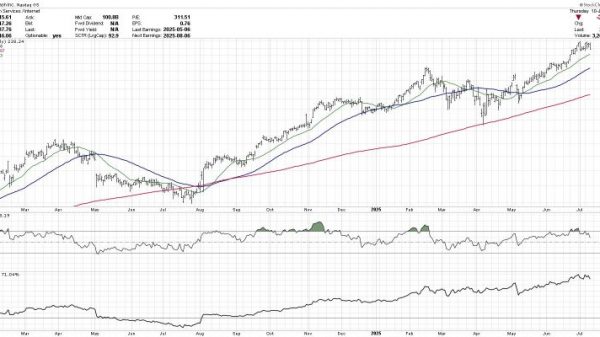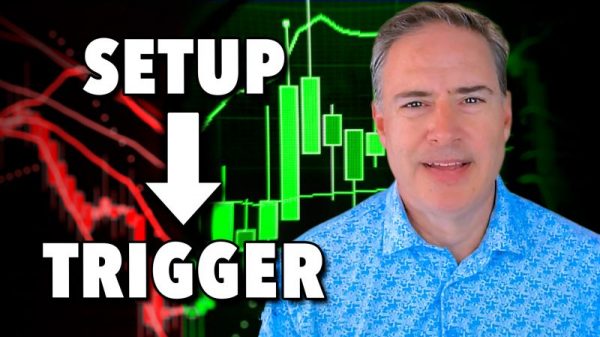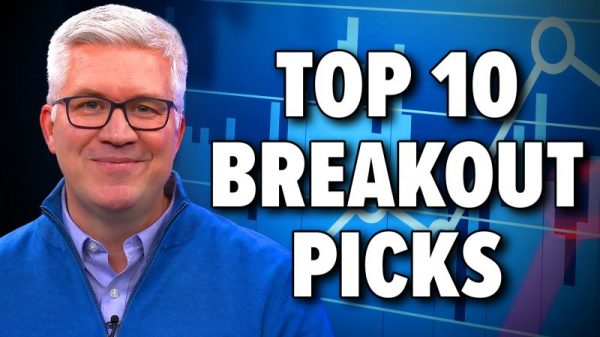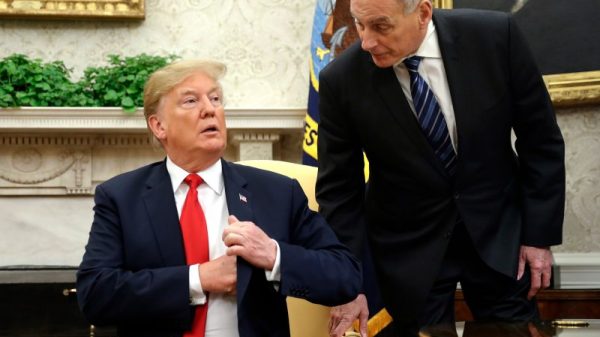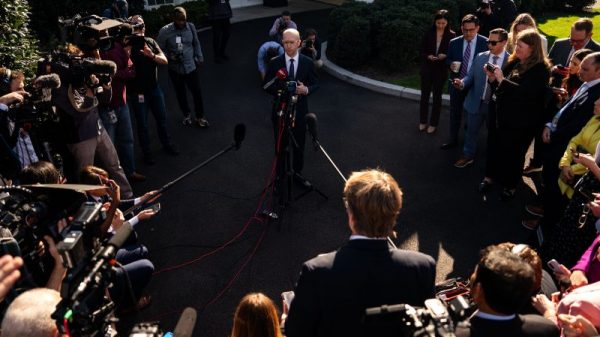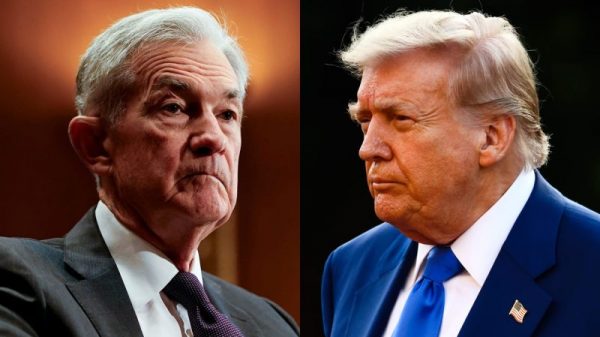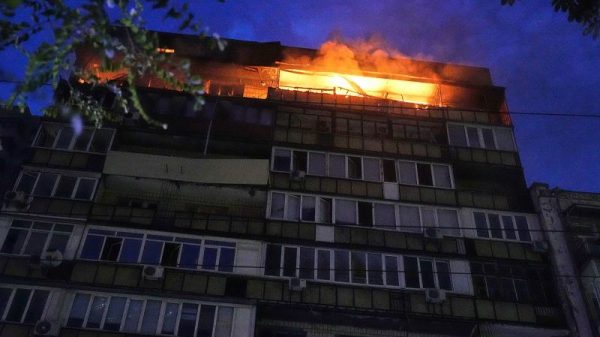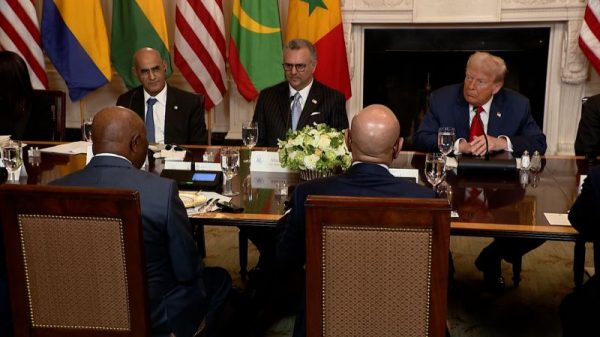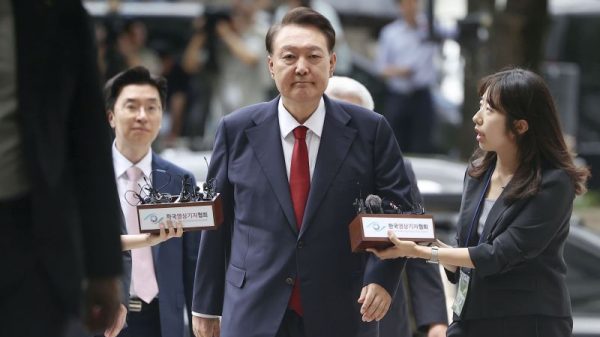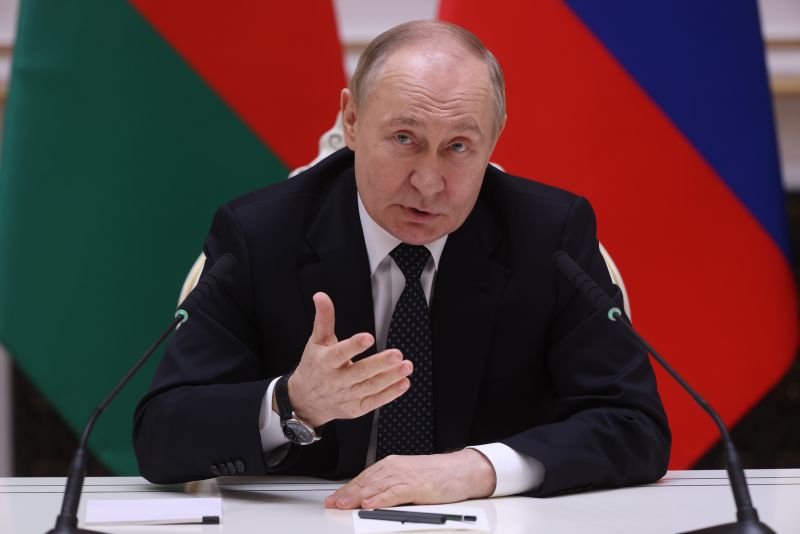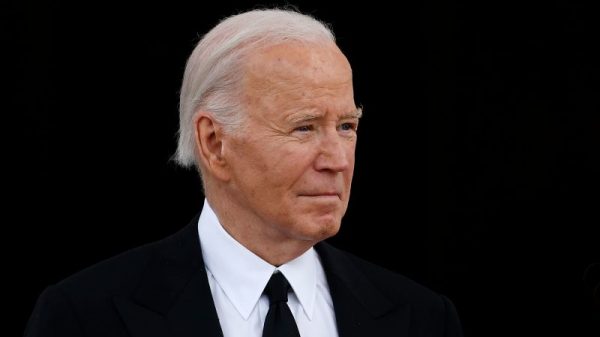Russian President Vladimir Putin’s signaling this week that he is open to peace talks should be viewed with vast, overshadowing caveats, and the weight of Ukraine’s – and the West’s – past experience of Russian diplomacy.
Friday saw a wealth of noise about negotiation, in the same month Moscow launched a third invasion of Ukraine from the north of Kharkiv.
The Reuters news agency cited four sources, in a report from two deeply experienced and connected Russia reporters, that Moscow was willing to consider peace talks which would freeze the current Russian occupation of about a fifth of Ukraine.
Putin responded to that report by suggesting Russia was willing to talk peace, based on earlier agreements. He hinted at an aborted deal in Istanbul, just after the war began, in 2022, which fell apart, mostly because Moscow’s forces were still rampaging across Ukrainian territory, and massacres around Kyiv had come to light.
The idea floated in the Reuters report would stop short of Moscow’s stated goal of capturing all of eastern Donetsk, but also eradicate Kyiv’s insistence it should not surrender any territory.
The context of Putin’s remarks was key. They came during a visit to Belarus’ President Alexander Lukashenko – something which in the past occurred moments before the Kremlin used Belarusian territory for military moves into Ukraine, while on Friday took place during joint tactical nuclear weapons drills between the two countries. Putin was talking peace with a backdrop that was anything but.
Putin questioned the legitimacy of Ukraine’s President Volodymyr Zelensky, who Moscow has repeatedly assailed, after Kyiv had to delay elections because of the very war Putin started. At the same time, there were unconfirmed reports that the private jet of former Ukrainian President Viktor Yanukovich had landed in Belarus. The pro-Russian Yanukovich fled Ukraine in 2014 after forces loyal to him shot dead dozens of protestors in central Kyiv. The mere possibility of his presence while Putin and Lukashenko met led to speculation Moscow was again hoping to engineer the return of a proxy to power in Ukraine.
The Kremlin’s less brutal goal in Ukraine – short of full or partial occupation – has involved a president in Kyiv it considers loyal, who will stop the country’s march towards the European Union and NATO. It was fanciful before the 2022 invasion, and came up during the aborted 2022 Istanbul talks. But now it would likely need an occupying Russian force to impose it on a population seething at the Kremlin’s brutality.
So why the talk of peace, particularly when Russia appears to be having its most successful moment on the frontlines in months, if not since the invasion?
Diplomacy has always been a military tool for the Kremlin. It talked peace over Syria in 2015, as their jets pounded civilians in rebel-held areas. It talked peace in 2015 with Ukraine, while Russian troops and their proxies were in the throes of a full assault against the strategic Ukrainian town of Debaltseve.
It is not cynical to distrust Russia’s sincerity when it negotiates, but a practical necessity. Experience shows it considers talks worth pursuing in case they unexpectedly produce a useful outcome without violence, or give their opponent cause for pause in fighting to try and encourage a deal.
Moscow may also be talking peace again now for two reasons. Firstly, Ukraine and its allies are convening a peace summit in Switzerland in June, where it will discuss, without Russia, what sort of deal it might accept. It is likely aimed at building momentum for an off-ramp the Kremlin can take when its forces are finally militarily exhausted or in a stalemate.
Zelensky has said he hopes China – Russia’s most potent ally but only partial supporter in the Ukraine war – will attend. Putin may be talking peace now to suggest to Beijing to not be involved in diplomacy about Russia without Russia present. There is little serious chance the Switzerland summit will end the war, but it might concretize minds in the West as to how serious a threat Moscow poses to an actual peace deal by laying out the bones of what damage Ukraine might have to absorb to its territorial integrity to stop the bloodshed.
Ukraine’s Foreign Minister, Dmytro Kuleba, said Friday that Putin’s hints at peace talks were directly aimed at sabotaging the summit. “Putin currently has no desire to end his aggression against Ukraine”, he wrote on X, adding “this is why he is so afraid of” the Switzerland summit.
Secondly, and most importantly, Putin is messaging governments in the West and the current American presidential campaign. He is trying to opaquely suggest – perhaps to populists in Europe, or MAGA Republicans in the United States – that a simple deal is in hand, one in which frontlines, on which Ukraine is currently losing with significant casualties, can suddenly freeze.
Western support for the war is costly, and increasingly unpopular – although the recent $61 billion passed by Congress has perhaps given the issue a reprieve from being at the mercy of electoral opinion for about a year.
The Reuters report permits those in the West who want to see an end to the war to believe the Kremlin could stop the war, as it stands, immediately. Kremlin spokesman Dmitri Peskov made the report sound like it reflected Russia’s permanent position. But ultimately it may sound new and interesting to key Western figures: Donald Trump – who has failed to explain how he would enact his claim he could stop the war in 24 hours – and other NATO members who are less bullish than France, the UK and the Baltic states, about the need to never trust Russia at the negotiating table.
Putin is a pragmatist. He started the war thinking it would be easy. He continued it thinking his tolerance for pain, autocratic security, and patience for victory would triumph. He might be right, just now. He now sees a moment of electoral weakness in the US, and other European states, which he has met with a vague, opaque signal that there might be a time for diplomacy.
It will likely gain some traction among those who desperately hope the war in Ukraine will just go away, and who are less mindful of the existential threat a victorious and hyper-militarized Moscow poses to NATO’s eastern members. But it should be viewed through the lens of the deep cynicism of Moscow’s earlier diplomacy in Syria and Ukraine: used as a time to ferociously pursue the same military objectives, but with the illusory backdrop that peace might be just around the corner.







